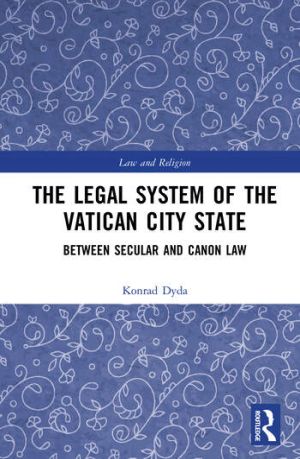
This book examines one of the fundamental phenomena in jurisprudence, Legal Transplants (reception of law), the study of which allows us both to determine the relationships between various legal systems and between civil law and other normative systems. Taking the Vatical City State as a case study, the work explores the theoretical and practical significance of canon law in the legal system. It analyses the sources of law and how it is applied in practice, especially in the jurisprudence of the Vatican courts and other bodies applying the law. The characteristic feature of this transplantation of law is the borrowing, by the legislative and judicial authorities of the State, of various norms: both of a strictly religious nature and those arising from the law of the Italian Republic, the European Union, the norms of international law, and their creative use to produce a distinct system of law. It is this creative use that constitutes the essence of the reception of law in the Vatican City State.
The book determines similarities and differences between the reception of law in the Vatican City State and other examples of reception of law, including the implementation of European Union law by individual Member States; the relationship between the reference by the Vatican legislator to the axiological foundations of the legal order and the role of legal principles in secular legislation; how the confessional character of the Vatican City State affects the content of legal norms applicable in the state and whether this mechanism can be applied in secular states. The book will be of interest to academics and researchers working in the areas of Law and Religion, Canon Law and Legal Philosophy.